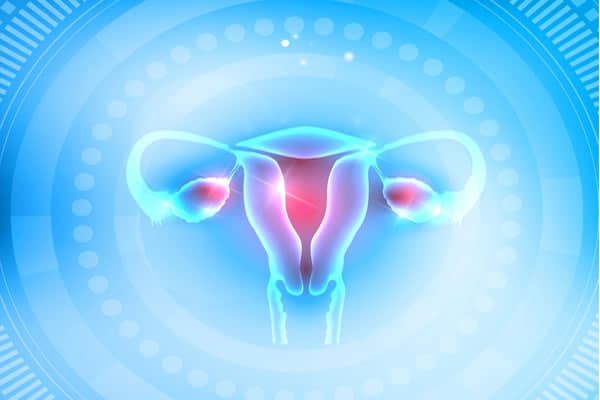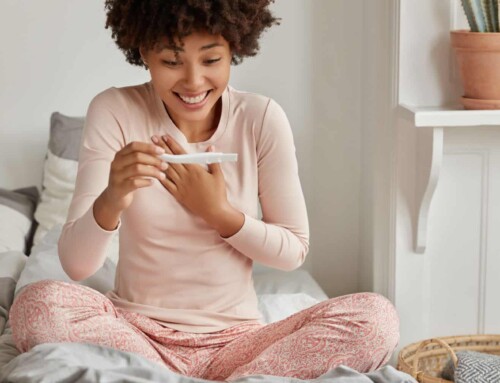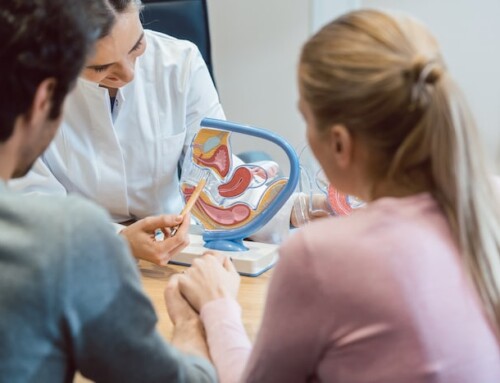A woman’s age is one of the top predictors of IVF success. However, ovarian reserve also tops the charts for IVF prediction and comprises a fertility factor that cannot be overlooked when you are considering IVF to start a family soon. In fact, ovarian reserve is one of the things our doctors and Team Miracle take into account and adjust each patient’s personalised stimulation protocol accordingly.
Ovarian Reserve: What is it?
The purpose of every stimulation protocol for IVF is, as a practice matter, the ease at which a woman’s ovaries can be stimulated with fertility medication. Considering the fact that a woman is born with all the eggs she will have throughout her life, it becomes apparent that a woman’s age is the most consistent variable that affects ovarian reserve.
In many women, most of their eggs are genetically balanced or normal, although there will be some that would be genetically unbalanced or abnormal, too. By genetically abnormal eggs we mean that there is an increasing proportion of an abnormal number of chromosomes (aneuploidy) in eggs and embryos. So, the older a woman gets, the less the egg (or resulting embryo) has the ability to correct errors taking place in the phase when the cells divide.
According to studies and research, the best eggs are the first that are ovulated, which means that there are fewer genetically normal eggs available to respond to fertility medications as the woman ages. This, in turns, decreases the potential of having many normal embryos available for implantation into the uterus, which is why younger women are usually more fertile than their older counterparts (>35 years of age).
What Affects Ovarian Reserve
Some women are what we call poor responders to attempts at ovarian stimulation, despite their young age. They could either be born with eggs that are genetically unbalanced or have poorer quality eggs due to:
- Pelvic infections
- Past surgical treatment
- Smoking
- Endometriosis that results in ovarian scarring
- Cancer treatment
- Unexplained infertility
That aside, some women are just born with fewer eggs. Of course, this doesn’t necessarily mean that her eggs are also of poor quality.
Statistically speaking, women in their 40s have 20% live birth rate with IVF treatment if they choose to use their own eggs to get pregnant. Although a woman with low ovarian reserve has lower chances of conception and live birth, this is not the end of the world. Team Miracle and our doctors provide patients with low ovarian reserve an alternative option that is extremely popular among women in their 40s (see below).
How do we Measure Ovarian Reserve
i) FSH Levels (Blood Test)
It can be measured through the level of FSH (Follicle Stimulating Hormone) on day 3 of the menstrual cycle. FSH is a hormone produced by the pituitary gland and helps stimulate follicles and produce eggs in every menstrual cycle. On day 3 of the cycle, we expect to have low FSH levels that increase in the course of the next couple of weeks, in healthy young women. As a result, their body gradually produces higher estrogen levels that help the egg mature.
It should be noted that the body will still try to produce FSH to drive egg production, even if the egg supply is low. However, it will do so at a much earlier time in the menstrual cycle. So, if your FSH levels are high on day 3 of your cycle, it is a strong indication of a potentially low ovarian reserve.
ii) Antral Follicle Count (AFC)
An ultrasound imaging that occurs at the beginning of the menstrual cycle can help detect a small group of antral follicles (pool of potentially mature eggs for the particular menstrual cycle) on the ovaries. A low count of antral follicles could be an indication of an abnormally low number of eggs in reserve.
iii) AMH Levels
AMH (Anti-Mullerian Hormone) is a hormone produced in the ovary when the eggs are small and has been found to correlate with ovarian reserve as it helps predict the number of eggs that can be retrieved during an IVF treatment and determine the starting dose for IVF drugs (always taking into consideration Day 3 FSH and AFC results). You can be tested for AMH throughout the menstrual cycle, without any particular limitations as per the exact day of the test, which makes AMH a convenient indicator.
Unfortunately, the scientific evidence is still inconclusive as to whether low AMH result can indeed mean that the woman’s pace of egg production is declining faster than supposed or if it means that she simply has a lower egg supply than women with higher AMH levels. So, it can be considered a broader predictor of fertility. This means that if you have a lower AMH level, it doesn’t necessarily mean that you have lower IVF chances, because you may have other fertility factors that could be acting in your favour and create a more enhanced fertility prognosis than we would expect based on the AMH test results alone.
All in all, ovarian reserve is often associated with IVF success rates. However, our experience has shown that it can only predict IVF success. So, it’s important not to use only the results of the ovarian reserve tests to determine a patient’s IVF success. At the Cyprus IVF Centre, we have treated many patients with low ovarian reserve response that got pregnant and gave birth to perfectly healthy children. What’s important is to be able to put the pieces of the puzzle together and know what to look for, when trying to determine a woman’s personalised IVF chances.
The information we get from ovarian reserve tests, though, allows us to know how likely it is for a patient to need higher doses of medications after the initial doses of gonadotropins (ovarian-stimulation hormones). They also provide us with valuable information in regards whether the patient is at risk for a condition called Ovarian Hyper-stimulation Syndrome (OHSS), where the body responds too much at the distributed dose of medications and causes complications. In this case, we start on a lower dose and monitor the treatment at a more regular pace than normal.
What to Do if you Have Low Ovarian Reserve
First of all, it is important to decide how important it is to you (and your partner) to use your own DNA to establish a pregnancy. That said, there is an alternative option that can significantly increase their IVF success rate: donor eggs, which will be fertilised by your partner’s sperm and help create an embryo that will be transferred into your uterus when the time comes. It is a wonderful option associated with high IVF success rates. No wonder it is such a popular therapy at the Cyprus IVF Centre among women over 38 years of age.
Now, if you decide you want to try a fertility treatment using your own eggs, despite the reduced chances for IVF success, you should definitely talk to your doctor and be prepared, both psychologically and financially, to cope with the stress involved, as well as potentially several failed IVF attempts. However, Our doctors is an experienced OB-GYN and fertility expert that won’t leave you feeling confused or allow your low ovarian reserve to hinder your chance to get pregnant. On the contrary, she will do everything possible, so that you take home a miracle baby. Please don’t hesitate to contact us to discuss your fertility problem and find the best solution for your case.






